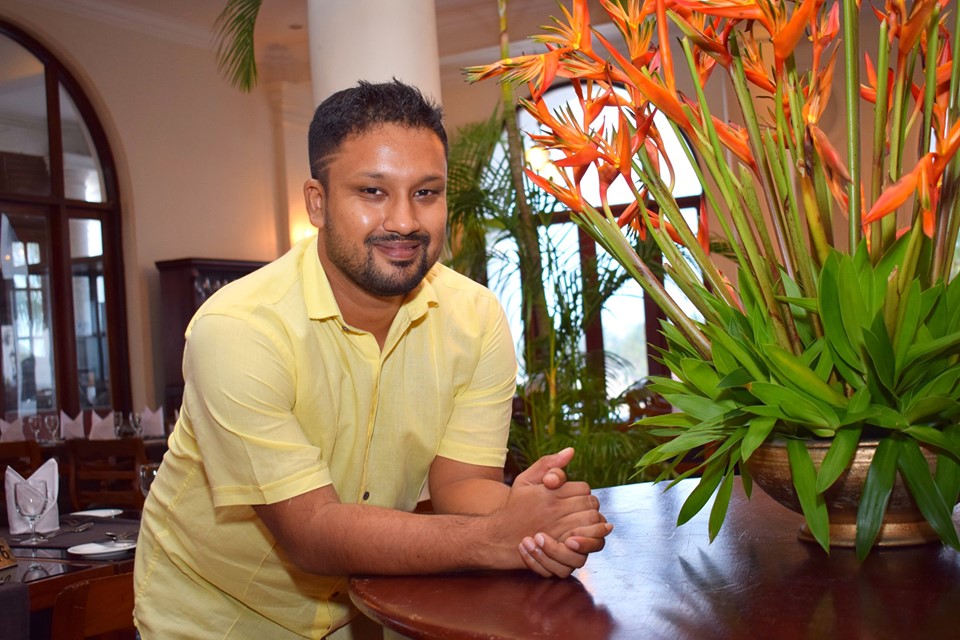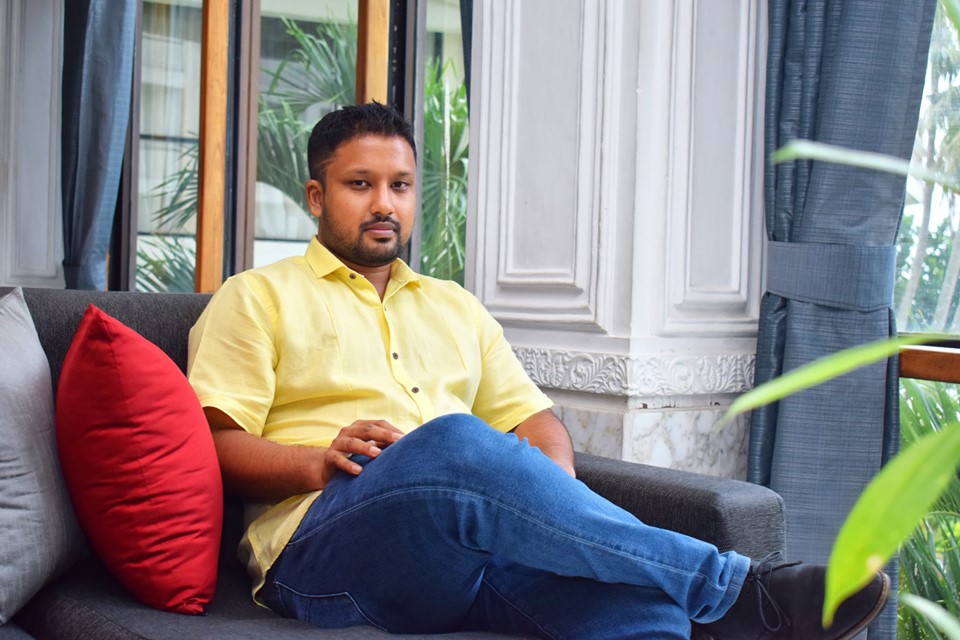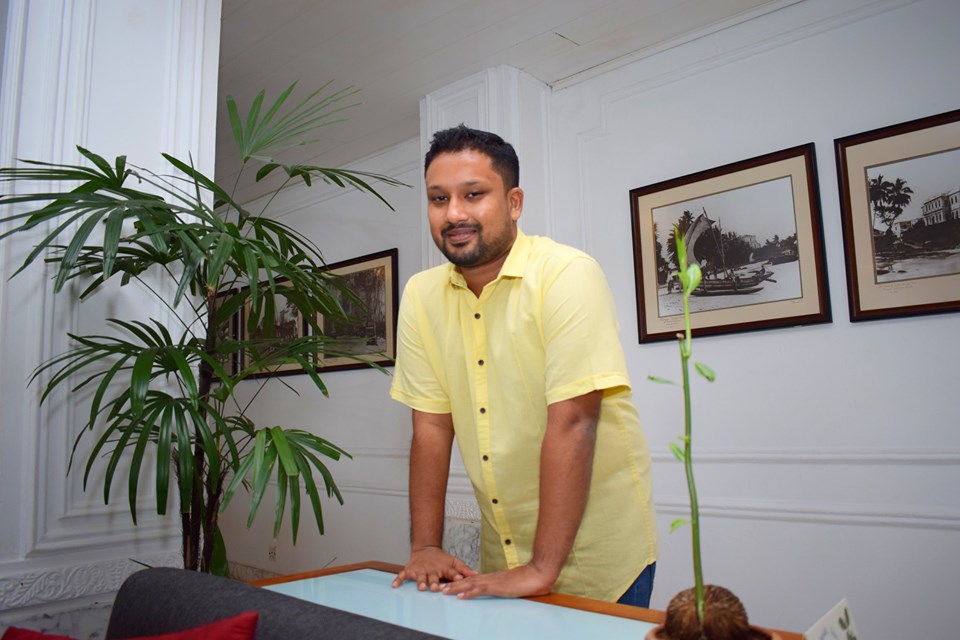The subject of this particular feature article really requires no introduction especially for someone who is active on social media, and who is also socially conscious when it comes to issues pertaining to mental illness and mental health in general. I was fortunate enough to have an Q&A interview with Nivendra Uduman who came across as an erudite individual who really does wear his heart on his sleeve. His life’s mission? That mental health be treated like how physical health is treated.
1. How would you explain who Nivendra Uduman is to a complete stranger?
I consider myself a humane individual who thrives on passion and love. I am comfortable when pushing boundaries and like being thrown in the deep end. Life experience is something I hold very important and is often seen opening myself up for new experiences. Challenging environments is something I regularly put myself into, be it providing first aid at a road traffic accident or swimming in flood waters, to save lives and deliver aid.
I studied at Royal College, Colombo 7, where I experienced my first major failure, which is not passing the Ordinary Level exam; yet my parents were very supportive and helped me explore various options. I joined the British School in Colombo to pursue the International Baccalaureate; it was a turning point since it created opportunities for me. I pursued a degree in Social Sciences, and I chose Psychology, Sociology and English Literature at Christ University, Bangalore. I found an affinity towards Psychology by the second year. At University I was involved with the Centre for Social Action at Christ University. I was interested in volunteering, and I would ride my bicycle after finishing classes, to teach English and life skills. My work at the Centre took me to Norway in 2009, where I was a part of the Peace Corps programme at the Sund Folk School for 10 months.
I pursued my Master’s degree in Counselling Psychology at Christ University (2012-2014) and have been practicing in Sri Lanka since. One of the most life altering events for me personally took place in 2016 where I met Maj. Ruvan Ranatunga (ex-army) during flood rescue in Colombo, who narrated his journey from Dondra to Point Pedro, which he had completed in 2014. On the 18th of August, 2016 with the support of family, friends, students and others, I took off from the Dondra lighthouse along with Hansini Gunasekara. ‘Footsteps to Freedom’ took me 550 km across Sri Lanka to Point Pedro in 44 days where I consistently had conversations with people and communities about mental health. It would be at a post office, teashop, military camp, or a school where we stopped and delivered short talks on mental health. During this year I was awarded a citation for excellence in service in the field of mental health as an alumnus by Christ University, Bangalore. In 2018, I along with Sara and Ranil took off from Mount Lavinia for Footsteps to Freedom-II. Over 73 days, we managed 1460km around the entire coastline of Sri Lanka averaging 20km a day, and conducted over 100 awareness programmes around suicide prevention and mental health in different communities.
Since the end of Footsteps to Freedom II, I have been practicing Psychotherapy and Counselling at my clinic that my parents set up as a surprise gift after the walk. I am still involved with training both government health workers and also people in the non-governmental sector. I am currently a part of the core team of The Ohana Project, which is a collective of mental health professionals from a multi-disciplinary background. I am also the co-founder of the Community Crisis Response Team LK, which is a group of individuals trained in emergency response who can be deployed for various emergencies.
2. Please explain your life’s mission?
My life’s mission is to live a life of service. To inspire other people and to help people grow. I hope to grow in the field of mental health, and to continue working in the grassroots.
3. You have been quite active in the sphere of mental illness, and it certainly is a topic that started off as being taboo, but now is slowly being discussed about. Explain the challenges you have faced with regard to bringing this conversation into the public arena.
Stigma is the greatest challenge in bringing conversation around mental health into the public sphere. There is still a great deal of apprehension, fear and shame surrounding mental illness in Sri Lanka due to mainly the lack of education and awareness. There is insufficient initiative from the government to bring mental health into mainstream education and this causes a significant portion of young people to not have adequate coping skills and knowledge around well-being. The scarcity of resources is another serious challenge we face in the field of mental health, where it really is not treated as a priority. There are archaic attitudes that still exist in our society that also contribute to stigma.
Another challenge I have experienced is integrating mental health and mental health care in key populations. The LGBTIQ+ community, people living with chronic illnesses, sex workers etc., have very limited access to mental health care, and I really want to change that. Easy access to care really promotes positive outcomes in terms of recovery and well-being, and this is a basic resource that everyone should have access to. Unfortunately, in Sri Lanka, we do not have enough professionals and services. I believe that mental health requires a holistic approach where physical health, social well-being and sometimes even spirituality needs to be integrated into mental health care. This is something we are striving for at The Ohana Project.
There is also the lack of cohesiveness amongst mental health professionals in Sri Lanka and this is a challenge as we work in our own silos. The flow of knowledge is often hindered due to this reason. The government and other healthcare professionals still do not really recognize Psychology as a science and a discipline.
4. When it comes to mental illness, what illnesses are commonly focused on locally?
Depression and Anxiety are some of the most prevalent mental health problems in Sri Lanka cutting across social strata and different communities. There are also people who live with serious mental health problems like Schizophrenia and Bipolar Affective Disorder in different social structures. Sri Lanka has had a history of increased suicide rates with us having the world’s highest rate of suicide in the 90’s. The number of deaths by suicide has dropped significantly since then, but suicide attempts continue to increase every day. There is also self-harm or non-suicidal self-injury that is seen quite frequently amongst young people. Alcohol is another key factor that contributes to mental illness and other psychosocial problems that we have to address.
5. What factors contribute to mental illness?
A mix of factors like genetics, biology, our environment and our circumstances may cause mental illness. There is often no single cause, and there is no specific kind of individual who is vulnerable. I believe that mental illness can happen to anyone from any socio-economic background, and it does not discriminate. I strongly believe that stigma, prejudice and discrimination contribute significantly to poor mental health, especially in the LGBTIQ+ community and those who already have been diagnosed with a mental health problem. People who have experienced war and violence are also at risk of developing mental health problems. People living with certain physical health problems like cancer, thyroid problems, diabetes, etc. can also be vulnerable in terms of developing mental health issues.
6. What advice would you give to someone who has a family member who suffers from mental illness? Who can they reach out to?
Read about the illness that your loved one has, ask their doctor/therapist, speak to other people who have loved one’s living with mental illness. I acknowledge that it can be very stressful and difficult sometimes to care for someone with mental illness in a country like Sri Lanka where there is not much education and support. However, this is gradually changing with more information being out there. I would also encourage family members to listen instead of offering advice or solutions (because advice hardly ever works), and to really validate their loved one’s experience.
I also believe that family members require support and someone to talk to. Find a mental health professional who is supportive and understanding, and use them as a source of information and support. There are also telephone helplines operated by organizations like Sumithrayo, Shanthi Maargam and 1333 (crisis support service) family members can reach out to, for support. Take breaks, prioritize your self-care, and remember, it is not your fault that your loved one has a mental health problem, and you cannot pour from an empty glass. Make sure your glass is full before you pour into another glass.
7. Elaborate on how corporates should address the issue of hiring employees who suffer from mental illness?
Employing people with disabilities is increasingly the focus of conversation around human rights these days. Rightly so, because people with disabilities have the right to. People living with mental health problems are still capable of contributing to society and they are not ‘damaged goods’. I think corporates really must prioritize not just hiring people with mental health issues, but really having conversations around stigma, discrimination and well-being in their respective workspaces. Hiring employees with mental health issues, comes only after existing employees and management are sensitized about mental health, rights of those with mental illness and of course around combatting stigma and discrimination.
8. What should an individual who is feeling suicidal do?
Suicidal thoughts can happen to anyone from any background. You do not have to be mentally ill to have thoughts about ending your life, and there is no ‘specific kind’ of people who have thoughts about suicide. It is important that we understand that suicidal thoughts are often temporary, they do not last forever. So, I think a person feeling suicidal can reach out to someone they trust, or a helpline in order to talk about what they are feeling. There are often options an individual can consider, and sometimes when someone is suicidal they are often see the world through a very narrow lens. Therefore, talking things through with someone can really help. It can be helpful to engage in a distracting activity like painting, exercise, household chores, or maybe writing about what you are feeling. There are other ways one can cope with problems and suicide is definitely not a healthy coping mechanism. I also want to say that feeling suicidal is not a sin, a bad thing, or a character flaw. It can happen to you and me. We can try to be more compassionate towards ourselves.
9. The younger generation is being actively involved in this movement to drag this polarizing topic into the forefront. Are there any individuals like Shavintha Fernando and his project — Semicolon Effect — you’d like to give a shout out to?
There are a few young people who are really taking the conversation around mental health forward in Sri Lanka and they need to be acknowledged. I want to mention Nathali Devinka, who after having recovered from Schizophrenia is using her experience to help other people and families cope with the illness; her book ‘Naked and Exposed’ has really shifted perspectives around mental illness. There is also Shmana Whitall who lives with mental illness, and she founded a charity called ‘Fearless Charities – Mental health Awareness and Support’, which aims to combat stigma around mental illness in Sri Lanka and she spends a lot of time helping the National Institute of Mental Health with funding and resources. There is also Shanuki De Alwis, who openly speaks about her experiences with mental health problems and I know for a fact that many young people have been influenced positively by her. Lastly, Shavintha is really a game changer in the field of mental health. He runs a support group called ‘The Semicolon Effect’ where people can come and feel supported, and talk about their mental health in a non-judgmental atmosphere. This group is a first of its kind, and it has really turned out to be a lifeline for people. I am happy that we have people like this in Sri Lanka, who push through socially-constructed boundaries and they give other people a voice.
Text: Rohitha Perera | Photography: Sampath Munaweera | Location: Mount Lavinia Hotel



